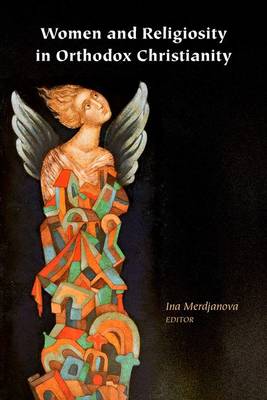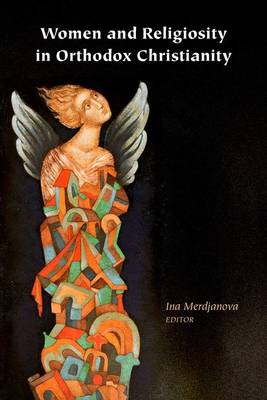
- Afhalen na 1 uur in een winkel met voorraad
- Gratis thuislevering in België vanaf € 30
- Ruim aanbod met 7 miljoen producten
- Afhalen na 1 uur in een winkel met voorraad
- Gratis thuislevering in België vanaf € 30
- Ruim aanbod met 7 miljoen producten
Zoeken
Women and Religiosity in Orthodox Christianity
€ 201,45
+ 402 punten
Omschrijving
Women and Religiosity in Orthodox Christianity fills a significant gap in the sociology of religious practice: Studies focused on women's religiosity have overlooked Orthodox populations, while studies of Orthodox practice (operating within the dominant theological, historical, and sociological framework) have remained gender-blind.
The essays in this collection shed new light on the women who make up a considerable majority of the Orthodox population by engaging women's lifeworlds, practices, and experiences in relation to their religion in multiple, varied localities, discussing both contemporary and pre-1989 developments. These contributions critically engage the pluralist and changing character of Orthodox institutional and social life by using feminist epistemologies and drawing on original ethnographic research to account for Orthodox women's previously ignored perspectives, knowledges, and experiences. Combining the depth of ethnographic analysis with geographical breadth and employing a variety of research methodologies, this book expands our understanding of Orthodox Christianity by examining Orthodox women of diverse backgrounds in different settings: parishes, monasteries, and the secular spaces of everyday life, and under shifting historical conditions and political regimes. In defiance of claims that Orthodox Christianity is immutable and fixed in time, these essays argue that continuity and transformation can be found harmoniously in social practices, demographic trends, and larger material contexts at the intersection between gender, Orthodoxy, and locality. Contributors: Kristin Aune, Milica Bakic-Hayden, Maria Bucur, Ketevan Gurchiani, James Kapaló, Helena Kupari, Ina Merdjanova, Sarah Riccardi-Swartz, Eleni Sotiriou, Tatiana Tiaynen-Qadir, Detelina TochevaSpecificaties
Betrokkenen
- Uitgeverij:
Inhoud
- Aantal bladzijden:
- 336
- Taal:
- Engels
- Reeks:
Eigenschappen
- Productcode (EAN):
- 9780823298600
- Verschijningsdatum:
- 2/11/2021
- Uitvoering:
- Hardcover
- Formaat:
- Genaaid
- Afmetingen:
- 152 mm x 229 mm
- Gewicht:
- 598 g

Alleen bij Standaard Boekhandel
+ 402 punten op je klantenkaart van Standaard Boekhandel
Beoordelingen
We publiceren alleen reviews die voldoen aan de voorwaarden voor reviews. Bekijk onze voorwaarden voor reviews.










